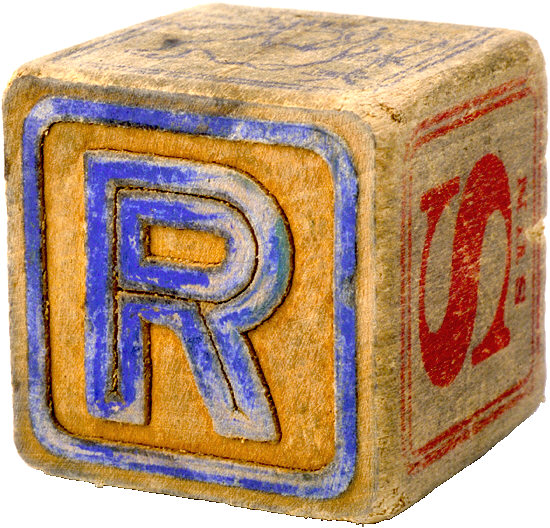












Contra Costa Preschool Directory & Kindergartens


The Preschool End-of-Day Frenzy
by
Dr. Lawrence Kutner
The end of the day at a preschool or child-care center is often filled with tension, tantrums and tears. It is a difficult transition for both the children and their parents, as each tries to adjust to the other's pace and expectations. Some children, who have been well-behaved since morning, seem to fall apart emotionally when their parents appear at the classroom door. They whine or refuse to get off their tricycles. They ignore their mothers' or fathers' entreaties to pack up their stuff and come home. A few get so emotionally worked up that they hit their parents instead of hugging them.
These rebellions and attacks can be especially embarrassing and frustrating because they're so public. Parents are acutely aware of the glances of the other parents and teachers in the room, and may worry that their children's actions will be interpreted as a sign that they have failed in some fundamental way. Comments by the teachers that their children have been "little angels" and "so well-behaved all day" provide little reassurance, and probably make the parents feel even worse.
It's easy to interpret these children's behaviors as a sign of a problem. Does it mean that the parents have done irreparable harm by shunting off their children to a preschool instead of spending all day at home with them? Are the children's actions a foreshadowing of later and more intense rejection of the parents?
Child development researchers generally agree that these fears are groundless. Not only that, but the child's apparent misbehaviors are, paradoxically, a backhanded compliment to the parents. It reflects the child's deep-seated belief that she'll be accepted and loved by those parents no matter what side of herself she shares.
Spending the day in a child-care setting, a preschool or a kindergarten takes a lot of emotional control. Young children must suppress their urges to act impulsively and grab everything they want for themselves. There's tremendous social pressure to share things, wait patiently in line, and do other things that don't come naturally to a toddler or preschooler. By the end of the day, a child has built up a tremendous amount of emotional tension.
They can't express this tension with words, of course. Behavior is the language of childhood. They share their frustration by asserting their power over their parents at the end of the day because their parents are the people they feel closest to. While they may endure some brief anger because of their behavior, they know that they will not be permanently rejected. It is a sign of how much stronger a relationship the child has with her parents than with her teachers.
We do the same thing as adults, of course. Think about the last time that you had a very frustrating day at work. You probably kept your emotions in check, since you knew the possible consequences of yelling at your boss or a co-worker. You behaved with civility even though your anger was seething. But when you got home, you felt much more free to share your frustrations with the people whom you felt safest with: your spouse, a close friend, or your own parents. You might have yelled or even acted out what you wish you could have said on the job. If you were feeling sufficiently short-tempered, you might have taken out your anger on the very person you feel closest to.
One reason we do this is that it's much safer than acting this way at work. We trust that the people who love us will continue to do so, even if we share the raw edges of our emotions. Like a preschooler's apparently rejecting behavior at the end of a school day, it is a reflection of the formidable bond between us.
While all parents see this end-of-the-day acting out from time to time, it's most common among parents who feel rushed. It's as if, when they try to pick their children up, they bring with them the mindset and tempo of an adult at work. You cannot impose adult efficiency on a preschooler's sense of pacing.
Keep in mind that young children generally have more trouble than adults do in handling transitions of all types. Good preschool programs take this into account, moving children smoothly and gently from one activity to another. Children receive a lot of warning about upcoming changes in their activities. Nothing is hurried.
Toddlers and preschoolers don't understand their parents' time frames. Instead of obeying, many young children will respond to their parents' requests to hurry up at the end of the day by dragging their feet or taking forever to find the stuffed animal they brought with them in the morning. Trying to force a child to move faster usually makes matters worse.
Such dawdling is a way for a child to show that he has power and control over his own body. (He may also want to show you that he can stay as long as he wants, because you've left him as long as you want.) Like many power struggles, this is one that parents are sure to lose. It's much easier and more appropriate for you to adjust your own expectations and sense of time so that they're more in sync with your child's.
We all forget to do this, of course, especially when we're under stress. A child psychiatrist friend of mine, whose wife used to run a preschool, told me about a particular afternoon when his four-year-old son's comments showed him a lot about how the stress he'd been feeling at work was being perceived by that child. My friend had had an especially frustrating day at the hospital before he showed up at his son's preschool. He rushed into the classroom and told the boy, "Get your coat, get your art project, and we're out of here!"
The boy, who had been playing happily and resented his father's frantic pace, looked up and replied, "I'm not going to get my coat. I'm not going to get my art project. And I'm NOT going to be a doctor!"
IMPROVING END-OF-THE-DAY TRANSITIONS
If you find yourself getting into battles with your children immediately before or after school, there are some things you can do that will make those transitions easier for both of you. Here are some examples:
- Develop rituals. Rituals give young children a sense of power. They quickly learn what to expect of you and of themselves during these times. For example, do something predictable when you show up at preschool at the end of the day. Give your child a hug and look at the drawing or other art project she's made that day.
- Food may help, since children are often hungry in the late afternoon. Instead of expressing that feeling in words (they may not even recognize it as hunger unless you ask), they'll act out by becoming whiny or defiant. Offering an apple, some crackers, or another healthy snack can often make the difference between a smooth transition and a tantrum.
- Remember that young children don't have your sense of time. Saying that they'll have to leave at five o'clock really doesn't mean anything to them. Instead, describe time in terms of events. A statement like, "We'll leave as soon as your teacher is through reading that story" lets them emotionally prepare for their departure.
- Build some extra time into your schedule. If you get up fifteen minutes early or delay dinner by a half hour, neither of you will feel as rushed. Have your child help you pick out her school clothes the evening before so that you have one less thing to do in the morning. Remember that getting your child off to school or out of school will probably take the same amount of time, whether you rush or not.
- Try not to become upset with your child for acting up at the end of the day. Remember that every parent has gone through this many times. Keep telling yourself that your child's defiant behavior is a sign that she feels very comfortable sharing her feelings with you.
- Remember that if you stay calm, your child will be able to "borrow" your emotional strength and will calm herself down more quickly. It also helps if you can put your child's thoughts and wishes into words by saying something like, "Oh, playing with your dolls is so much fun that you wish you could stay forever!" By getting those feeling out into the open, your child will be better able to handle them.